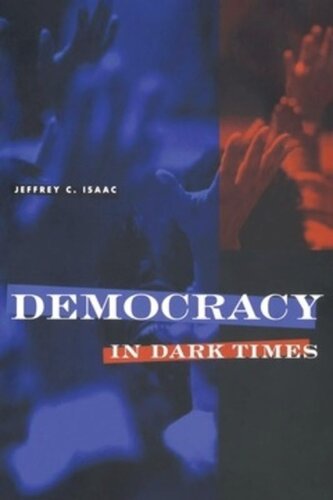

Most ebook files are in PDF format, so you can easily read them using various software such as Foxit Reader or directly on the Google Chrome browser.
Some ebook files are released by publishers in other formats such as .awz, .mobi, .epub, .fb2, etc. You may need to install specific software to read these formats on mobile/PC, such as Calibre.
Please read the tutorial at this link: https://ebookbell.com/faq
We offer FREE conversion to the popular formats you request; however, this may take some time. Therefore, right after payment, please email us, and we will try to provide the service as quickly as possible.
For some exceptional file formats or broken links (if any), please refrain from opening any disputes. Instead, email us first, and we will try to assist within a maximum of 6 hours.
EbookBell Team

5.0
90 reviews"This is a truly illuminating and necessary book. Jeffrey Isaac lucidly explores the moral and political dilemmas of this turbulent fin-de-siecle, East and West. His passionate approach is inspired by a genuine moral vision that sees liberal democracy as an unfinished, continuously beleaguered project. Hannah Arendt and Albert Camus, I am sure, would have been in full agreement with his line of reasoning."—Vladimir Tismaneanu, University of Maryland, College Park "This will be the first of the many recent books on Hannah Arendt to move beyond exegesis to engage in the kind of thinking about politics that she so valued. The book brings an Arendtian voice back into contemporary politics."—Lisa Disch, author of Hannah Arendt and the Limits of Philosophy "Jeffrey Isaac's new book is essential reading for anyone who seeks to grapple seriously with the challenges confronting progressive democratic aspirations."—Ian Shapiro, Yale University "This book reveals Isaac to be a first-rate essayist, a bold critic who writes about key issues of politics and democracy with learning, style, and power."—Robert A. Dahl, Yale University "Persuaded by Jeffrey Isaac's argument about dark times, I nonetheless found these essays full of light—strong, lively, provocative, and even, despite themselves, encouraging. There can't be a renewal of democratic theory and practice without the kind of critique that Isaac provides."—Michael Walzer, Institute for Advanced Study